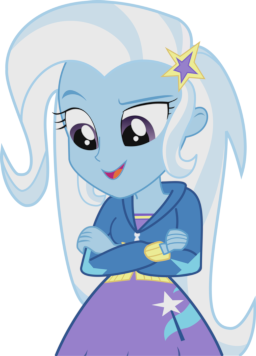
(I wrote this story with a few changes to suit my 11th Grade English Class, so forgive how rushed and unrefined it is. My friend Sp3ce did some editing for me, and helped me out with some formatting. I hope you enjoy, even with the shit pacing)
Your name is Anon, and you are a model student. You have the perfect record, highest grades, and you are all around liked. But when you meet the new girl, everything just falls apart.



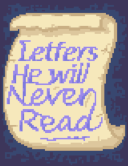



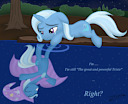

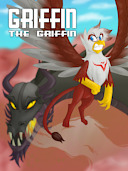

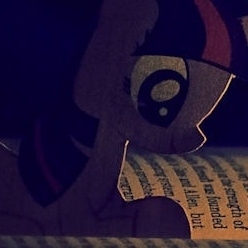
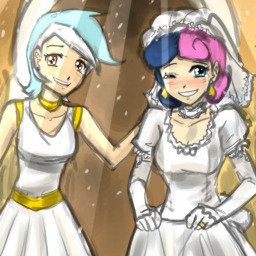
>Almost six years with a perfect record,
Where is that still in place?
4824002 What do you mean?
4824076
Six years at that school, or six years of school in general?
4824113 Six years at that school
4824278
If your protagonist is in 12th grade, that means he's in his senior year of high school -- but high school is only 9th through 12th grade, so the maximum amount of time he could've been in that particular school is four years, not six -- unless he's either flunked out and had to repeat a grade two years in a row, or unless that school combines both middle school (grades 6 through 8) and high school in one facility. (Which would be highly unusual; at least, I'm not aware of any public school system in the U.S. which does that.) It may seem like a minor detail, but even minor details can de-rail a story by breaking the reader's suspension of disbelief if they're not explained.
For a first attempt, it's not too bad... it just needs more substance to it, and better pacing (which you've already noted); ultimately, it doesn't really amount to much, and nothing's really at stake. Grammatically, you've got a good handle on homophones like "your" vs. "you're" (although you did mis-use "principle" when you meant "principal"); the only major, consistent error I can see is your dialogue punctuation.
When you have dialogue followed by an attribution of who said it and how, the whole thing -- dialogue and attribution together -- is treated as one complete, single sentence. If the character's dialogue is meant to end with a period, you put a comma before the closing quote mark, and then you do not capitalize the first word after the closing quote unless it's someone's name. Like so:
If the dialogue ends in a ? or !, you use those marks as normal, but you still treat the whole dialogue-plus-attribution as one sentence and do not capitalize the next word unless it's a name:
Only when what follows the dialogue is not a "speech action" indicating who said the preceding dialogue and/or how it was said, but is a separate action which occurs after the character finishes speaking, do you end dialogue with a period and start a new sentence:
This is done correctly, because the dialogue is spoken first, then the action of walking up to the machine takes place.
Also, don't be afraid to just use the basic "said", "asked", or "replied." These are "invisible" to the reader, so to speak, and they won't notice you using them -- but they will notice you constantly trying to avoid using them.
(And if your English teacher tries to tell you differently, point them towards Douglas Adams' The Hitchhiker's Guide to the Galaxy novel. In the first chapter (15 pages), there are 58 dialogue attributions, of which 44(!) are "said", with the remaining 14 being fairly evenly divided among "growled", "continued", "exclaimed", "shouted", "asked", "hooted", "called", "sighed", "joke (-d)", and "reply (-ied)". If it's good enough for an author whose books have sold 15 million copies worldwide, it's good enough for your teacher's high-school English class. )
)
Also: I strongly suggest not writing in 2nd-person perspective. That sort of thing may work in online roleplaying games and "choose your own adventure" books where "you" (i.e., the reader) are given the chance to make choices to control the outcome of the story, but it's a poor choice for fixed narratives. (I'm actually rather surprised your 11th-grade English teacher would even accept it in that form; mine certainly wouldn't have back when I was in high school...)
Hope that helps!
4824549 Thank you. Just to clarify, when I say 12th grade, I mean high school senior, but in Australia, things are a bit different. For starters, our "Elementary" or Primary Schooling ends in the 6th grade, and so our High School starts in 7th, so I see it as he'd been in high school for 6 years at this point, but I am trying to take other countries' education systems into account when writing things.
To clear up some extra stuff about pacing and substance, I only had a couple of hours to write this so that I wouldn't get in trouble, and it was with no reference to pony unless you count using the name Trixie (which is still a bit of a common name), but other than that, it was just a school-kid's attempt at using a theme to pump out some kind of love story. I basically went through and replaced regular stuff with pony stuff, and then had my friend help me with some editing stuff so it could get posted.
In regards to your notes on my dialogue punctuation, I can explain. We were never really taught that in school, and because I'm not much of a reader, I can't say that I even knew that I was supposed to do that, but I guess the point of life is that you learn something new every day, am I right?
Again, thank you for your notes, and I appreciate the notes and tips you have given me.
4826273
Ah, so basically, the Australian system only has "elementary" and "high" school, then? Interesting.
Well, just for reference: The most common system here in the USA goes like this:
The most common system here in the USA goes like this:
Elementary School: grades 1 - 5
Middle School: grades 6 - 8
High School: grades 9 - 12
You may, occasionally, see references to "junior high" in stories written in (or taking place in) the 1950s or earlier; that's a different system which used to be more common, but which has mostly fallen by the wayside since the 1960s or so. (Although some school districts still use it, oddly enough.) Basically, it had elementary school as grades 1 - 6, junior high as grades 7 - 9, and high school as grades 10 - 12.
Well – not to put too fine a point on it, if you want to be a writer, you have to be a reader. You don't have to immerse yourself in the kind of dry Literature Studies "classics" your schoolteachers have probably inflicted on you – Doctor Who and Star Trek novels, the Harry Potter series, and so on will give you plenty of grounding in narrative voice, plot construction, and functional grammar/punctuation skills without putting you to sleep within five pages – but you do need to do a lot of reading to become a good writer.
– but you do need to do a lot of reading to become a good writer.
4826552 Well, either way, thank you for the tips about what to do. I'll take it into account next time.
4826552
4826592
Actually, to my understanding, we have
Primary School: R-5
Middle School: 6-9
High School: 10-12
It's something like that but I know for a fact that we have middle schools. Although our Primary Schools are usually R-7, 6-9 is still called Middle School. That's generally why 10-12 get senior jumpers and shit at High School
Okay, pretty decent but bare bones stuff here.
You probably should've lengthened this out a bit. Maybe add a few thousand words to it so that you could develop the characters a bit better. I know this was for a school project, and god did I make those things fast as well, but you should've put a little more care into it before posting it. The environment of a school is very different from a place like this.
Forgiving the fast pace of the thing, there are a few minor issues. Firstly, Trixie's reactions seemed very high strung. She was on the brink of tears over a scuffle? Seemed very strange to me, especially since the punishment was just forgive and forget after class (which is also weird since they just left without telling anyone...?).
Finally, the epilogue actually gave me a bit of nostalgia for the show. I was thinking you were going to end it as a letter to somebody or something just because that's the feeling I got. I hope this is what you were aiming for, because otherwise it's kind of corny.
All I have to say. This story does seem kind of small though, I'd rather see how you handle something a bit longer.
4843847 Actually, I wouldn't mind making a follow up to this story, but the problem is that I've got one story I need to finish, then convert, and then I've got another to start afterwards, and then I'm writing a follow up to the one I'm almost finished with.
But thank you for your pointers, and I'll make sure to take them into account.
With the whole crying thing, though, is that Trixie was most probably over thinking shit when they were being taken to the Vice Principal's office, and I know from experience on how badly that fucks up ones thought process, and turns them into an emotional wreck.
bump